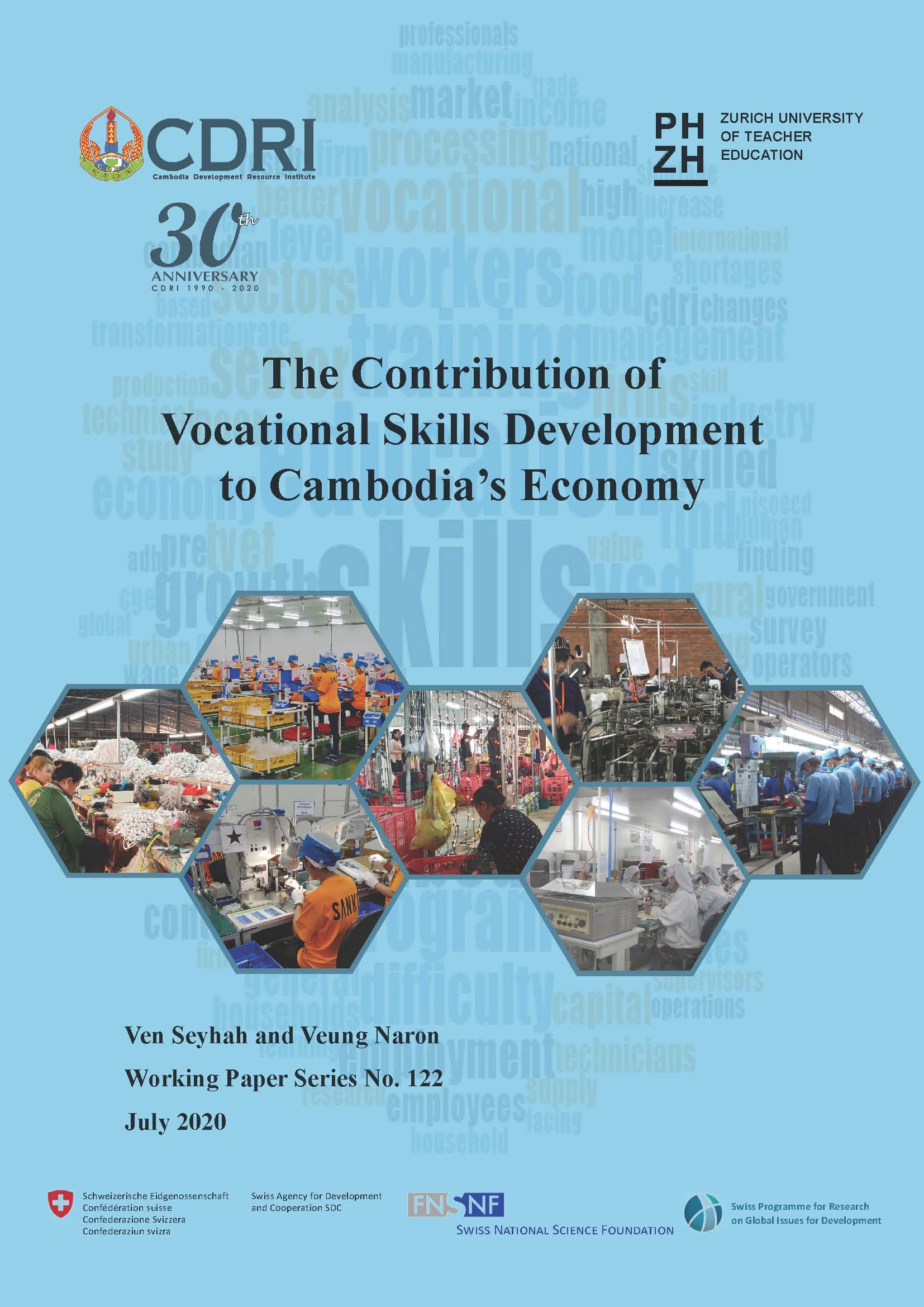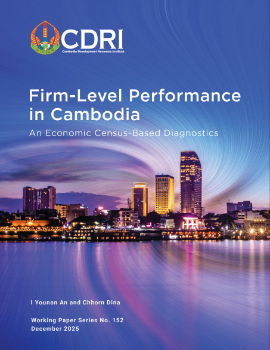
The Contribution of Vocational Skills Development to Cambodia’s Economy
Keyword: Vocational skills development, Industrial Development Policy, manufacturing industry, skills gaps, shortages, skilled labour
Abstract/Summary
This study investigates the role of vocational skills development (VSD) in addressing Cambodia’s industrial labour shortages and its broader economic impact. Using firm-level survey data from 101 companies in the garment, food processing, and electronic and electrical assembly sectors, alongside a Computable General Equilibrium (CGE) model, the research assesses the effects of VSD programs and a hypothetical increase in skilled labour supply. Findings reveal widespread difficulty in recruiting technicians, operators, and management personnel, with recruitment challenges negatively impacting firms’ operations and growth. While companies perceive VSD programs as beneficial, statistical analysis shows mixed results: pre-employment VSD correlates positively with technological transformation but not with firm growth. The CGE simulation indicates that a 10 percent increase in skilled labour supply could boost GDP by 0.83 percent, though it may also distort wage structures and exacerbate skills mismatches. Benefits from increased skilled labour are unevenly distributed, favouring better-off households. Policy recommendations include enhancing public-private partnerships, aligning VSD curricula with industry needs, improving labour market data collection, and expanding access to vocational training for disadvantaged groups. The study underscores the importance of targeted, demand-driven VSD strategies to support Cambodia’s industrial development and inclusive economic growth.



